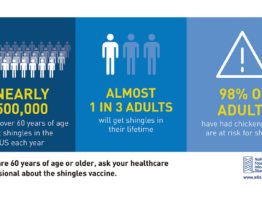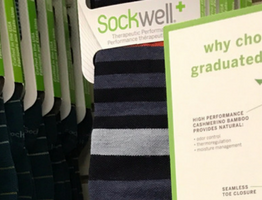
Vitamin D: What is it and why do we need it?
Many years ago, doctors realized that sunlight, which allows you to produce vitamin D, helped prevent a bone condition called rickets in children. Recent research shows a link between vitamin D and strong healthy bone. Moreover, vitamin D may be important in preventing and treating a number of serious long-term health problems.
What is vitamin D and what does it do?
Vitamin D is a fat-soluble vitamin that is stored in the body’s fatty tissue. It promotes the absorption of calcium and phosphorous from the intestine and maintains their levels within the normal range required for healthy bones. If you don’t get enough vitamin D, you may lose bone mass, have lower bone density and may be at risk to break bones as you age.
Your body produces vitamin D by exposing your bare skin to sunlight. The amount of vitamin D that you produce depends on many factors such as your type of skin, the time of year and time of day. The time of exposure to sunlight needed may vary from 15 minutes for a fair-skinned person to 2 hours or more for a dark skinned person.
Besides getting vitamin D through direct sunlight, you can also get it through certain foods and supplements.
The National Institutes of Health (NIH) recommends that you obtain vitamin D from all three of these sources in order to ensure adequate levels of the vitamin in your blood
What are the food sources of vitamin D?
Vitamin D is naturally available in only a few foods, including fatty fish like wild-caught mackerel, salmon and tuna. Vitamin D is also added to milk and to some other dairy products, orange juice, soymilk and cereals.
Check the food label to see if vitamin D has been added to a particular product.
How much do I need?
It is very difficult to get all the vitamin D you need from food alone. Most people need to take vitamin D supplements to get enough of the nutrients needed for bone health.
The recommended daily intake is 400 IU/day for infants, 600 IU/day for children and adults.
If you have vitamin D deficiency or if you are currently taking medications that affect vitamin D metabolism, your body may need a higher dose to maintain healthy bones. A dose from 1,000 to 5,000 IU daily or 50,000 IU/week may be recommended by your physician.
Ask your pharmacist or prescriber about the adequate amount of vitamin D that is right for you.
What form of Vitamin D should I take and how should I take it?
There are two types of vitamin D supplements; they are vitamin D2 (ergocalciferol) and vitamin D3 (cholecalciferol). Vitamin D2 is the synthetic form and usually requires a prescriber’s prescription. Vitamin D3 is the form that is naturally made in our bodies when exposed to enough sunlight. Both forms need to be converted to an active form that your body easily absorbs. Vitamin D3 is converted 500 times faster to the active form and is generally preferred.
For most people, vitamin D is easily absorbed whether it’s a tablet, capsule or liquid drop. It can be taken with or without food. While your body needs vitamin D to absorb calcium, you do not need to take vitamin D at the same time as a calcium supplement.
If you need help choosing a vitamin D supplement, ask your pharmacist for a recommendation.
How do I know which form of vitamin D is in my supplement?
Check the label to see if it contains vitamin D3 or cholecalciferol. If you can’t find the information, ask your pharmacist.
Do vitamin D supplements expire?
Yes. An expiration date will be printed on the label. When supplements expire, they loose some of their potency and can no longer guaranty efficacy. If you use expired vitamin D, you won’t be harmed, but you may no longer be getting as much active vitamin D as the label says.
Where can I get more information on vitamin D?
Here are a few websites with some excellent information on vitamin D:
National Institutes of health: https://ods.od.nih.gov/factsheets/vitamind-consumer/
National Osteoporosis Foundation: http://nof.org/calcium
Or for more information about which supplements are best for you, ask one of our pharmacists at Valu-Med Pharmacy.









